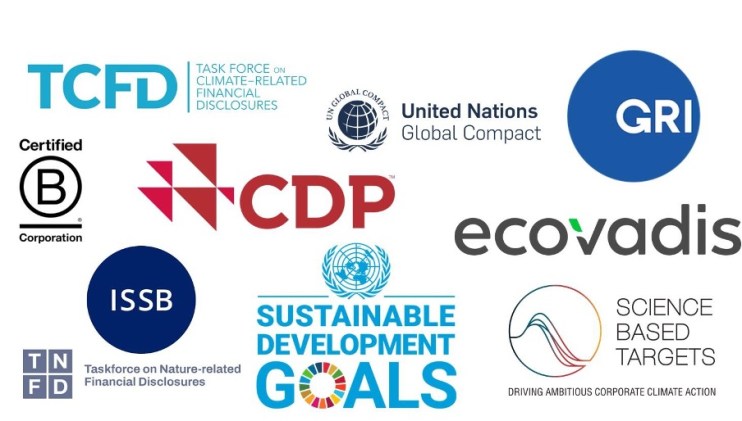Navigating ESG Reporting Initiatives & Accreditations

The plethora of ESG reporting initiatives, accreditations and ratings can be extremely confusing and certainly overwhelming to those not in world of sustainability every day.
It is estimated there are over 600 ESG reporting frameworks and standards globally and in addition there are accreditations and ESG ratings that firms can obtain.
Currently initiatives are voluntary for AIM listed companies; except TCFD for UK incorporated firms with over 500 employees or Asset Managers managing £5bn+ AUM. However, the scope of TCFD mandatory reporting is anticipated to increase to all UK firms by 2025.
Additionally, new global standards are being created by ISSB with the first standards due in Q2 this year and the Taskforce on Nature-related Financial Disclosures (TFND) is also in draft and under consultation.
Deciding which initiatives your firm should adopt will depend on several factors, including:
– ESG vision and current reputation,
– Regulatory requirements – current and future,
– Sector, size and bandwidth,
– Investor and client expectations,
– What peers, competitors and sector leaders are doing.
All initiatives require a significant level of effort to implement and backtracking on decisions once disclosed with shareholders can risk a firm’s reputation. As an absolute minimum, firms must be proactive with their ESG reporting strategy and decide centrally where to spend their ESG reporting effort.
We have created a summary of the key global initiatives being used by AIM market participants today.
On the global ESG reporting horizon…
Taskforce on Nature-related Financial Disclosures
- Launched in June 2021 and backed by G7 finance ministers and G20 Sustainable Finance Roadmap
- TNFD is structured the same as TCFD, and requires reporting across 4 pillars – Governance, Strategy, Risk Management and Metrics
- The fourth and latest version of the framework is currently under consultation.
International Sustainability Standards Board
- Established in November 2021 at COP 26 in Glasgow by International Financial Reporting Standards
- The ISSB’s objective is to simplify the ESG disclosure landscape into a global common, consistent language of sustainability related financial disclosures for investors.
- The scope will cover the full ESG spectrum, starting with Environment.
- ISSB is consolidating and extracting value from existing standards and frameworks where possible, including SASB, TCFD and TNFD.
- The first standards, S1 (general) and S2 (climate) are expected to be issued at the end Q2 2023.
- There is a key focus on proportionality to ensure maximum inclusivity – good news for small-cap firms.
- Although no jurisdiction has declared the ISSB standards will be made mandatory, in October 2022, the G7 reiterated its commitment to mandatory climate disclosures and announced its support for the ISSB initiative.